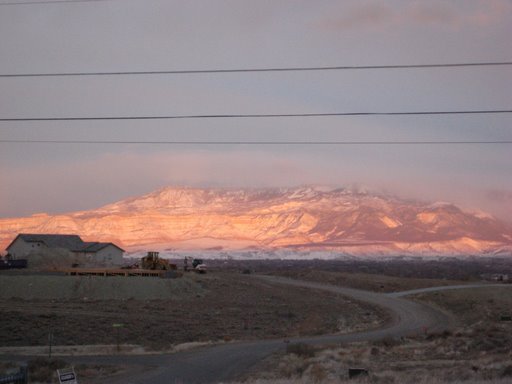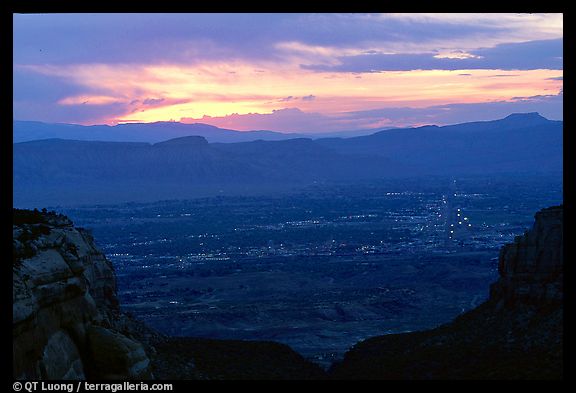Wednesday, December 23, 2015
Colorado officials consider limiting solar energy’s access to farmland
In Weld County, not all energy production is created equal.
If a proposed ordinance goes through, solar farms won’t enjoy the same access to agriculturally zoned land — which covers about 75 percent of the county — that oil and gas drilling and coal mining enjoy.
The potential law requires all solar facilities sit on land zoned industrial, which is more expensive to lease.
Early indications are the commissioners aren’t totally sold on the change.
They took the proposal to the public for the first time during their meeting Monday morning. Residents will have two more chances to sound off on the issue before it can be adopted.
Business owners and local farmers took this first opportunity to voice their complaints.
SunShare, a small Denver-based solar company that works with Xcel Energy, has plans to install three small facilities in Weld in 2016, but that might change if the ordinance is approved.
“This proposed ordinance kills solar,” said John Sullivan, a SunShare spokesman. “We’re not going to move to Weld County (if it gets approved).”
The ordinance would restrict development on agricultural land. Now, there are few things people can do without getting special permission, called a use by right. For example, residents are allowed to build one house, raise crops and feed livestock. Some projects have to go through the use by special review process, such as oil and gas storage and coal mining.
Related: A state-by-state look at renewable energy requirements
Oil and gas drilling is considered a use by right, but the commissioners are considering a rule that requires a USR for all new facilities.
The proposed rule would boot solar facilities from the list of USR uses on ag land and push them onto the list of industrial uses.
The change in code — as it’s written now — would keep residents who own farmland from allowing companies to install small solar projects on their land, and it would keep solar companies from buying property to turn into solar facilities.
Melinda McKey’s family recently bought 140 acres of dry land. This means the land is zoned for agriculture but doesn’t have irrigation access. She and her family, like many Weld farmers, struggle to make money on a farm with no water.
“You’re very limited in the crop production,” she said. “We’d like to get more income from solar.”
Richard Miller of Clean Energy Cooperative advocated for community solar farms. These smaller operations work like community gardens; they let people who don’t have the resources for solar panels — apartment dwellers or people with weak roofs — invest in off-site solar panels and have the money they raise knocked off their power bill.
Community solar gardens typically span 6-9 acres and produce 1-2 megawatts of energy, enough to power about 190 houses, Miller said. Large commercial facilities produce from 10-150 MW and can cover hundreds of acres.
While large power companies might be able to afford the more expensive industrial land, it’s harder for the little guys.
“Community solar would be priced out of the market,” Miller said.
The company offers its services to save customers money, he said, and raising the cost of production would make the product prohibitively expensive.
SunShare’s Sullivan argued four benefits of small, commercial solar farms, which are generally the same size as community farms: They don’t take up much space; they pose no inconvenience to surrounding areas; they actually can help farmers; and they could raise more revenue for the county.
SunShare has three projects slated to go up in Weld in 2016, and each of them would cover 12 acres or less.
“We’re not going to coat Weld County with solar projects,” Sullivan said.
Unlike many industrial facilities, solar farms have no on-site employees, he said. There are no lights at night, no emissions and no sound.
Small facilities such as the ones SunShare is proposing stay for about 20 years, Sullivan said. The time can serve as a break for the soil to replenish. If one goes onto an operating farm, the farmer can use the water that would have irrigated those acres somewhere else.
He said though the solar farms would be on ag land, they would pay property taxes as industrial operations, which are charged a much higher rate.
The commissioners were split on the idea of allowing all solar farms, big and small, to set up shop on farmland.
Commissioners Sean Conway and Julie Cozad praised the idea of energy diversity, and Cozad said she felt landowners have the right to decide how to use their land. She also pointed out that other types of energy production are allowed through the USR process.
Commissioner Barbara Kirkmeyer pushed hard for solar’s industrial designation, saying solar facilities are industrial in nature and don’t fit on farmland, which should be used for farming.
She said other energy production depends on natural resources specific to one area. For example, oil drilling has to take place where there is oil.
“It’s a natural resource, and it is where it is,” she said. “You can’t really zone oil and gas.”
Similarly, wind patterns dictate where wind turbines can go. And farmers can plant around the turbines.
“They’re not covering up 16 or 110 acres (like solar farms do),” Kirkmeyer said.
The group did agree to consider making a condition to the code change that would make an exception for the smaller and community solar farms, especially ones farmers use to make more money.
“That actually would make sense in an agricultural area,” Kirkmeyer said.
Subscribe to:
Post Comments (Atom)





No comments:
Post a Comment